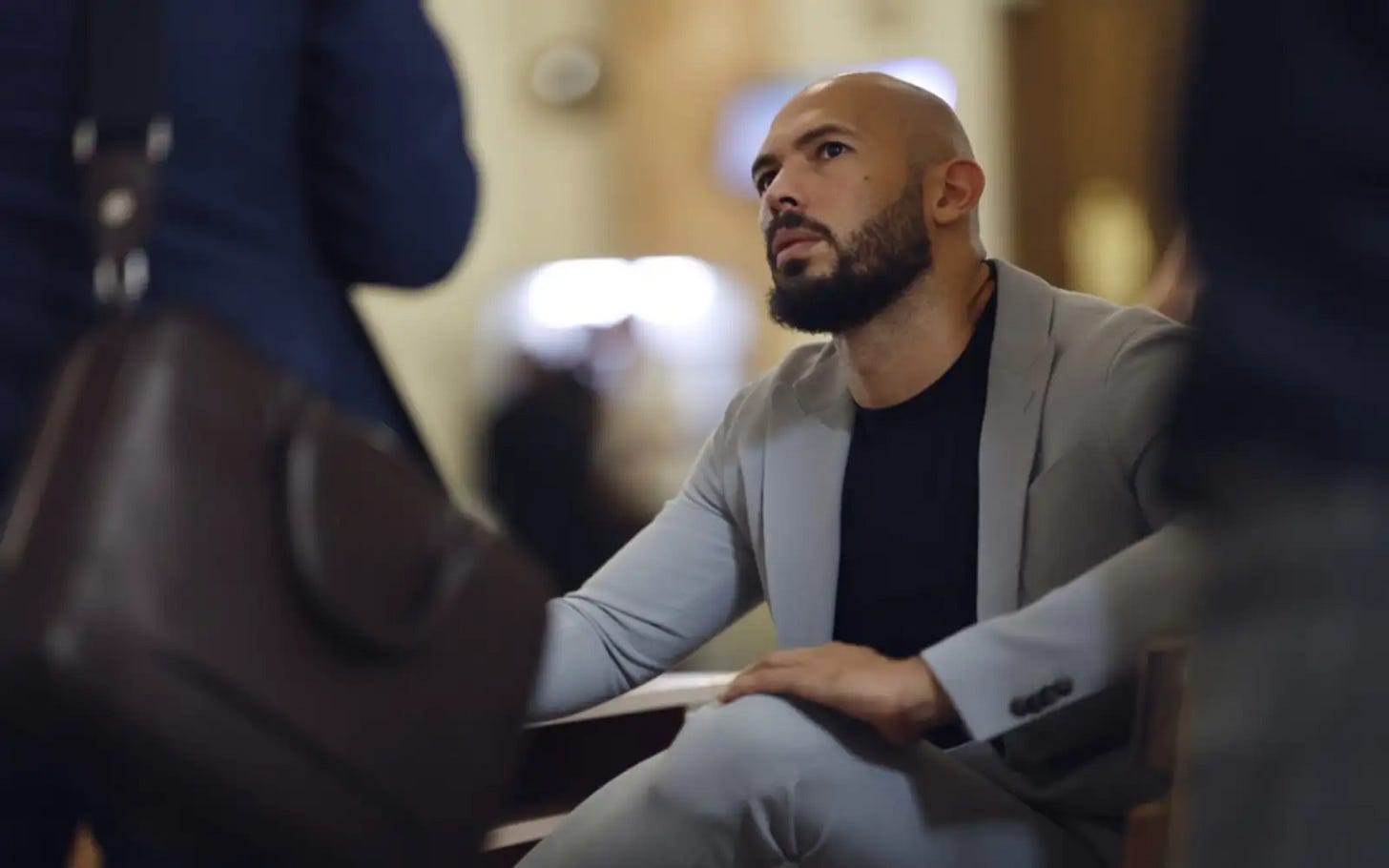Andrew Tate, Supermasculine Menial
The crisis of manhood cannot be solved by a digital pimp.
The Right has waged a long-running debate about the crisis of masculinity. The basic critique is that the feminist capture of our institutions has created a pervasive cultural hostility toward men, undermining traditional models of masculinity and leaving young men adrift. Unfortunately, opportunists and charlatans have rushed in to fill the void.
Perhap…



